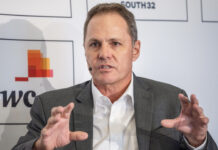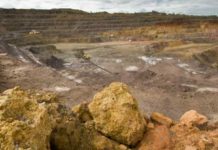
[miningmx.com] — NATIONALISATION was an “unhelpful” answer to an urgent group of questions and the debate had to be recast in more constructive terms according to Bobby Godsell, chairperson of Business Leadership South Africa.
Speaking at a “Mining for change” seminar in Johannesburg organised by AngloGold Ashanti and Motjoli Resources, Godsell said the underlying problems were lack of jobs and the inequality of income distribution in the South African economy.
He quoted statistics showing that, in 2005, the poorest 20% of the SA population earned 2.3% of the national income while the richest 20% earned 70%.
Godsell pointed out that South Africa was not alone in this situation – both Namibia and Botswana showed even greater rifts between rich and poor in their societies – but noted that “this is certainly an uncomfortable place to be”.
“South Africans need neither the ANC Youth League (ANCYL) nor the National Planning Commission to convince them of this social and political crisis,” he said. “The evidence of our eyes each day tells us this is so.”
Godsell said the demand for nationalisation was based on outdated notions of how capital was formed in advanced industrial capitalist societies, as well as an outdated notion of “what government is and how government works”.
He said the greatest source of capital accumulation today was the pool of contractual savings of working men and women – pensions, provident funds and insurance policies.
“This is the capital that has funded growth in the global economy over the last half century. These savings are invested in new and expanding economic activity.
“This is the peoples’ capitalism that provides simultaneously for individual future needs and for the immediate growth of our productive economy,” Godsell said.
That was in sharp contrast to early capitalist societies where great wealth and capital had accumulated in the hands of just a few individuals.
Godsell pointed out that governments do not accumulate capital and are not able to invest for the long term.
Instead, governments ran their books on a cash-in and cash-out basis and also ran up large amounts of public debt annually which had to be serviced.
This year South Africa would spend R76bn to service its national debt, which was greater than the amount currently allocated to the police force in the country’s budget.
Godsell said eight of the 12 demands delivered by the ANCYL to the Chamber of Mines during its recent march had already been dealt with through government regulations and did not require state ownership.
Turning to the other four, Godsell said three had to do with nationalisation itself, the constitution and the need to realign industrial policy. “I have to say to the Youth League that your demand that mine owners should stop threatening to disinvest when your proposal is to nationalise them is naive.”
Godsell said the nationalisation debate needed to be recast. Targets should be agreed and set to address issues such as economic exclusion, poverty levels and economic equality.
He added both the Youth League and organised labour would have to embrace the requirement for greater economic growth to achieve such targets. “We will have to at least double the size of the South African economy over the next 20 years. This will require new leadership and new relationships,” he said.
“A simple mindset is needed. No economic freedom without dramatic economic growth. No sustained economic growth without much greater economic freedom. It’s not either or. It’s both. It’s as simple as that.”
In his address to the seminar, ANCYL treasurer Pule Mabe said “the mines have been freeloaders in this country for a very long time. Legislation has allowed them to amass wealth”.
“To say nationalisation cannot happen is to rob the youth of this country of its future. To say it’s a far-fetched thing without providing alternatives is to stand in the past.”










